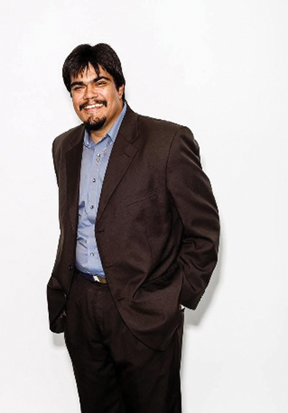By Michael J. ARVIZU
his year, on April 24, the world will commemorate the 100th anniversary of what is traditionally considered to be the beginning of the 1915 Armenian Genocide.
I admit I know very little about the Armenian Genocide. I remember learning a lot about the Jewish Holocaust while in school – studying the writings of Anne Frank, and learning of the horrors faced by countless millions in concentration camps like Auschwitz and Bergen-Belsen. We watched movies such as “Schindler’s List” and screened countless documentaries showing survivors telling their life stories.
But very little was ever taught about the Armenian Genocide. To this day, every time I begin researching the topic of the genocide for an article, I learn something new. To me, it is a fascinating subject.
In the course of my research for new stories covering the upcoming commemoration, I’ve also had the opportunity to meet new people, including survivors, and relatives of survivors of the genocide. It is a rare and special gift for a journalist to encounter such individuals who know first hand the horrors faced by countless millions.
But today, 100 years later, the biggest concern is teaching new generations about the genocide and continuing to fight back against efforts to deny that the genocide even occurred.
“There is a value in knowing the past – accurately,” said Dr. Levon Marashlian, a professor of history at Glendale Community College. “In the Armenian case, it becomes doubly important because there’s an official government denial. Any episode in history has a value in remembering it, even when it’s not a controversy.”
No one doubts there was a Great Depression, Marashlian said. No one doubts that we had a Civil War – no one denies it – but we still study it. For decades, Marashlian said, attempts to sweep the Armenian Genocide under history’s rug – particularly by the Turkish government – have been attempted. As such, he said, it falls on his generation and subsequent generations to not only study the genocide but also keep the message of the genocide alive as denials and attempts to make it disappear continue.
“This is a year that is probably an unusual year for Armenians, 2015, because it signals our beginning,” said Father Vazken Movsesian, director of St. Peter Armenian Church in Glendale, in a sermon given in January. “It’s exactly 100 years ago that we found ourselves here in the Middle East, in Canada, in Mexico, in all kinds of areas, because of a forced genocide. Now it’s 100 years later, and we have an opportunity to find ourselves today.”
Beginning today, March 26, Glendale Community College hosts a month-long series of commemorative events leading up to the 100th anniversary. Events include moderated panels, musical programs, and art exhibitions, among others.
In a resolution adopted in September 2014, the GCC board of trustees declared April 2015 as a “Month of Commemoration of the 100th Anniversary of the Armenian Genocide of 1915” and echoes a similar resolution adopted by the Los Angeles Community College District in August 2014.
Today’s opening program is a Women’s History Month lecture titled “Women Suffering, Surviving and Succeeding During and After the Armenian Genocide.” The talk will be given in the college’s Krieder Hall, at 1500 N. Verdugo Road, from 12:20 p.m. to 1:30 p.m.
Beginning at 12:20 p.m. on April 23, the college will formally commemorate the centennial with a program in the college auditorium and a wreath laying ceremony at the college’s Armenian Genocide Memorial Plaque. For more information, and to view a complete schedule of events, visit www.glendale.edu.
Reach Michael J. Arvizu at michaela@cvweekly.com. You can also follow him on Twitter @thedjmichaelj.

